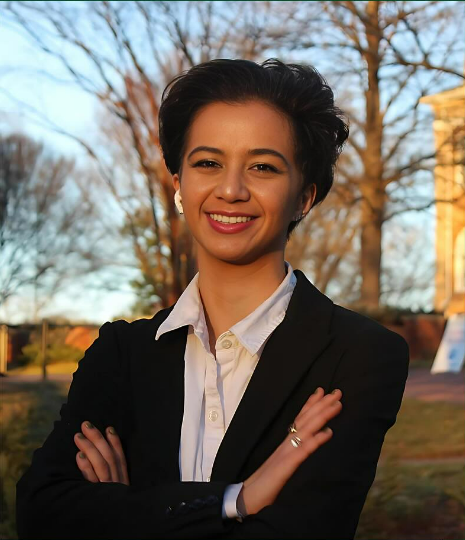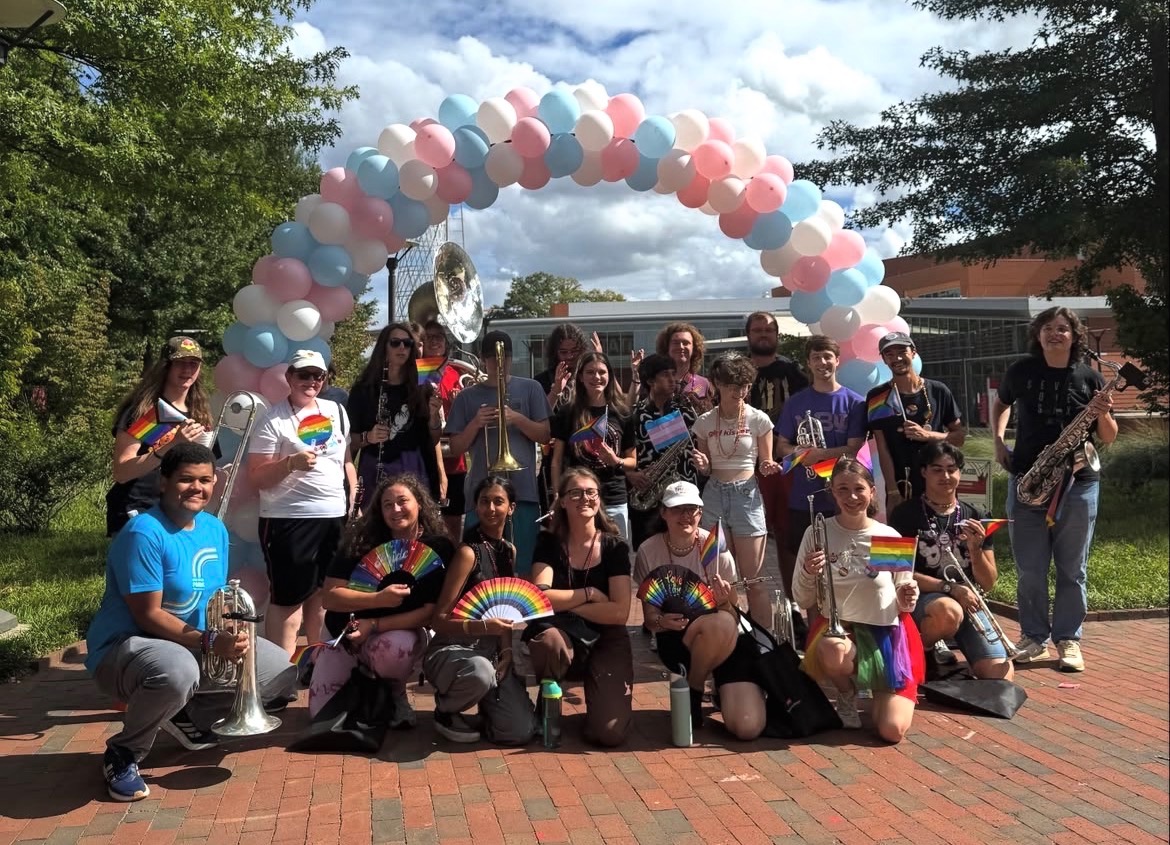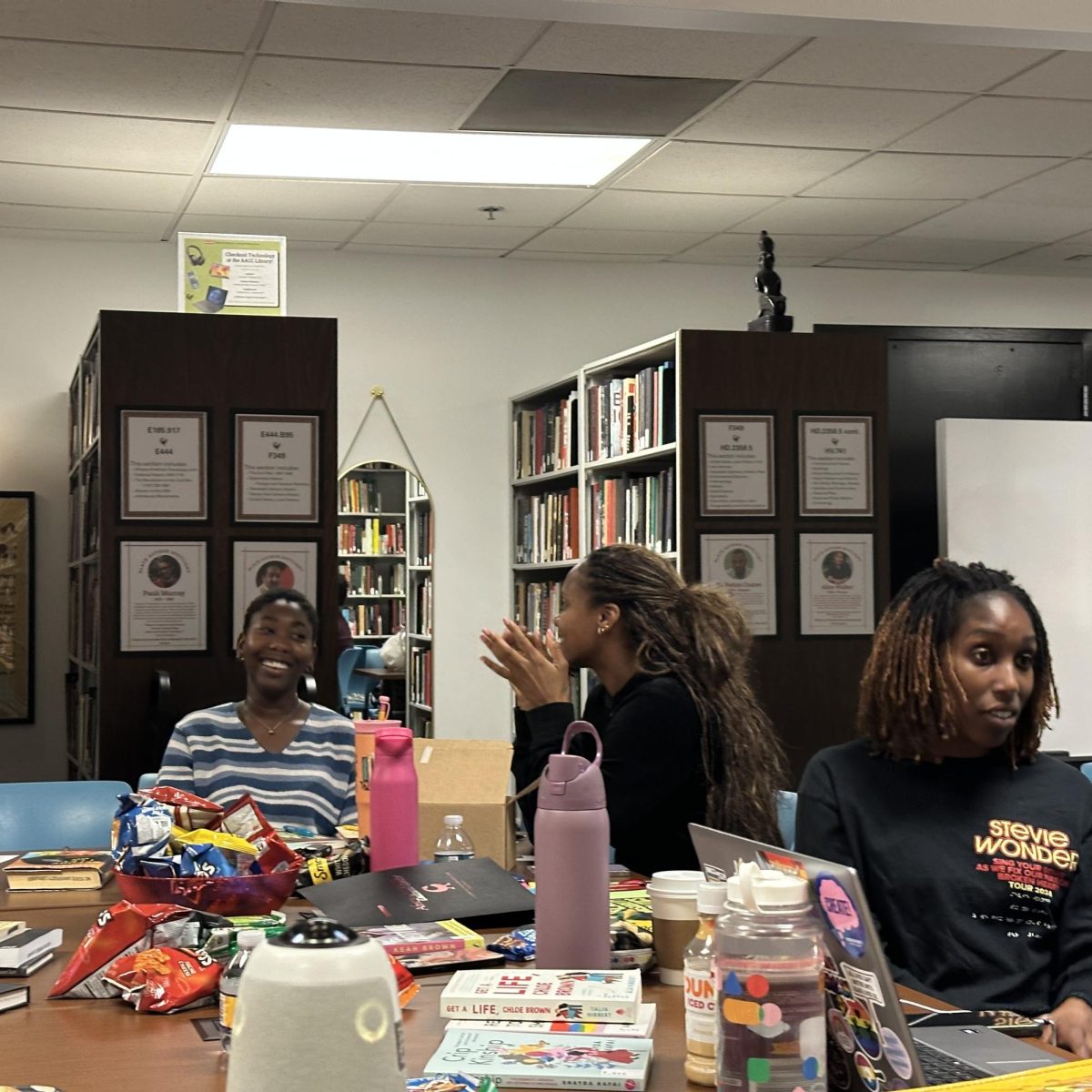On Thursday, Feb. 28, NC State’s Student Government (SG) held the first Student Senate President Debate. The debate was between candidates Caroline Miranda and Justin Pittman. Nubian Message had the opportunity to interview Caroline Miranda, a second-year studying Physics the student senate President Pro Tempore, following the debate. Nubian Message: Why do you want to be Student Senate President (SSP)? Caroline Miranda: I think, first and foremost, it’s about fostering and building up other student leaders around me. I think something that student government, even from whenever I did it, many years ago, starting in junior year of high school at science and math, or North Carolina School of Science and Math, was that it gave me an outlet to connect with everybody and understand a broad overview of campus, and then also make an actionable change, and make a difference in the lives of people around me. I have a very strong sense of justice in the way of if there’s something that I see that’s going on wrong, I will do everything in my power to fix it. Being able to work with somebody on like a piece of legislation or help them see their idea come to fruition is something that brings me so much joy and being able to be that student voice and make a difference is something that I feel is a calling for me to do. NM: What prior experience do you have with the senate and its committees? Miranda: I’m in sort of all of the committees in a way. Between me and Stephen [McGuinness, Student Senate President ] this past year, we make sure that we go to every single committee meeting and have somebody from the Senate office that makes sure that somebody is present at one of those committee meetings. As well as last year whenever I was just a normal senator, because Student Senate Pro Tempore is also a senator, but it’s like the senator plus sort of thing, I was in the committee on academics. So we were able to do things like working on that Land Acknowledgment Act that was passed and access to academic advisors. I was the head of the internal operations committee, which is like oversight and rules changes. So similar to what we call rules and then grow, which is government relations oversight. So it’s a very broad sort of, like scope of different committees. I could go on and on about all the things I’ve done in student government because it’s really my passion. NM: How do you plan to support Senators as SSP? Miranda: Yeah, so I think one of the things is leading by example. I think you can’t expect people to do things if you’re not willing to do them yourself. If not you, then who is something that I have sort of taken to mind, but also, I think one of the biggest things as Student Senate President is empowering folks through information and being transparent about those sorts of things with like, ‘hey, this is what I’m doing throughout student government,’ or like within the university, and being like, ‘hey, these are the initiatives.’ Providing that opportunity, speaking the names of my senators in rooms that they’re not necessarily invited into initially, and working on understanding each and every one of their individual backgrounds. I think this is something that I’ve been trying to do as well, making the student government space more open and welcome. It’s a small thing, but I have Office snacks in my office. Acknowledging that senators are students and human and being like, ‘hey, if you need a space, even if I can’t support you, let me give you the resources.’ I think something that I didn’t get to mention during the debate with the mental health and wellness question that you guys had was that I am somebody who has ADHD and anxiety and depression. Being real about those sorts of things, I think is important. Understanding that ‘hey, you guys can come to me if you have these questions’ and leading with an empathetic mindset. I’m somebody who’s very, very slow to judge and is willing to give people as many chances as I can and acknowledge that I’m there for them. Again, as Pro Tempore, I joke that I have 62 kids. They’re my senators in that same way that somebody would say ‘Oh, these are my students’ and having that genuine care and love for everybody who’s in student government makes them feel like they’re included. NM: What type of legislation would you like to see passed next year and why? Miranda: I think I would like to see more maybe social activism sort of things. I think that especially with an election year coming up, it’s important that we don’t remain a bystander but also acknowledging that we are speaking on the behalf of a student body, so wanting to be inclusive of all views, or at least making it so everybody has a voice. I think mental health is something that I am really passionate about and wanting to make sure that those sorts of things are still being upheld within the university. This is a passion project of mine, of making student government more ethical, accountable and transparent. If you go in the senate office, there’s a bunch of sticky notes that are like ideas of a couple of things I probably will need try to get done [such as] enforcing the idea of looking at a ethics disclosure requirement for things like appointments. So if we can be a good example for future sessions, then that’ll be great The change that we make lives on. NM: How do you plan to ensure more marginalized students are represented in the Senate? Miranda: I think that’s something that in the wake of the Harvard and UNC cases, I think it’s important to acknowledge that the impact is likely that we will have less marginalized folks in our university as a whole. But I don’t think that that should reduce our ability to have their voices included, it just means that we might have to look a little harder to reach those people. So going to those spaces and partnering with like, MSA, which is right next door. I think that’s something that we haven’t partnered enough with. Working on those sorts of things and working with the Women’s Center work and actively fostering those relationships, and also a more formalized way, perhaps, I think, would be something that would be really beneficial and having that structured relationship. I was the only gender-diverse folk and the only trans person within Student Government. I understand that pressure of like being the only one in that room in a room but also, knowing my own limits of being like, ‘Hey, this is how you take space for yourself and set boundaries.’ But I think making sure that like we’re here to listen and also actively outreaching. NM: What can you bring to the table that you feel your opponent cannot? Miranda: First and foremost is experience. I think that Justin as a senator coming in already had a decent grasp of Robert’s Rules and that kind of thing. But there were some, I think, ideas that he brought that were, I think, like not necessarily applicable or like may have caused some things that were like, ‘hey, actually, you can’t do that.’ I think that with my experience, I have an understanding of how to make not just short-term change and how to be efficient within the university and within the student advocacy sphere because there’s a lot of bureaucracy that goes on. And it takes experience of working with administrators, working with faculty, working with staff,
to understand how to navigate that and how to actually get what you want done. I think secondly, I am somebody who is going to be a lot more welcoming and inclusive than my opponent. One fundamentally, just from again, being from a couple of marginalized communities and not trying to be like, ‘oh, you should choose me because I’m the minority candidate,’ but because I actively work on checking my bias and training that to make sure that I am as unbiased as possible. I’m here to learn from my senators as well as they’re here to learn from me. I think that’s understanding that we’re all kind of in this together as student leaders. I have the experience and my entire year, this past year has been shadowing the Student Senate President. So I know what his role does in great detail in depth. NM: You mentioned that legislation is often the last step to making change on campus, what are other ways senators can make a change on campus and how do you plan to support them? Miranda: The first thing first, is that the way to make changes is just by contacting the university folks directly and just making sure that your branch leader is in the loop on that. I think a great example of this is, we have something called the “what to fix form.” Within the “what to fix form” somebody had submitted ‘I see that freshmen are feeling lonely in our dining halls and I think it would be great if we had like a make a friend table.’ And so what Stephen did, was that in his meetings with on University Council with campus enterprises, he was like ‘hey, this is an idea’ and directly connected both that student and himself. Now there’s the community table and fountain. I think the thing is that oftentimes, resolutions in legislation is often like a ‘hey, do it now.’ That’s not necessarily conducive for building that relationship with campus administrators. Because I think fundamentally, building up our social capital or political capital in the university and using it wisely, grows the trust in student government. Having that conversation and facilitating that, I think it’s something that’s super important, as well as empowering people with the knowledge is super key. NM: What else should people know about your platform that was not covered in the debate or this interview? Miranda: I think I want to like, acknowledge and explore different communities than maybe what is initially identified as like, vulnerable, or folks who are facing these issues and find those hidden issues and reach out to those sorts of things. For example, the student parent association came and spoke with a split last Senate, and we realized ‘hey, this is something that is affecting a lot of folks.’ This is a population of people that are being wholly ignored by any sort of advocacy efforts. I think one of the biggest things that I would like to do is, even with not necessarily just COVID, but the structures in the systems that we’ve built, that we’ve relied on for the past couple of years, I think, are fundamentally isolating. We’ve all been in our own little bubbles and while that’s fine, I think as we work to actually grow and not just survive as an organization or as a department within the university, as we want to work and grow past that within this new world since 2020. It’s important that we’re reaching out again and having those conversations.
Interview with Student Senate President Candidate Caroline Miranda
Nubian Message Editor
•
March 5, 2024

1
0







Anonymous • Mar 6, 2024 at 6:03 pm
5